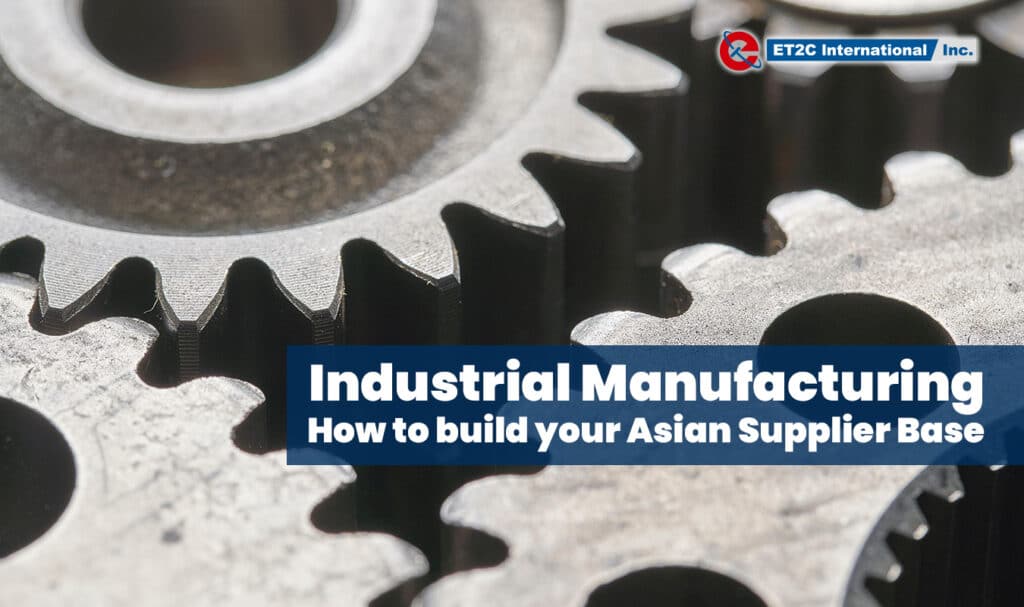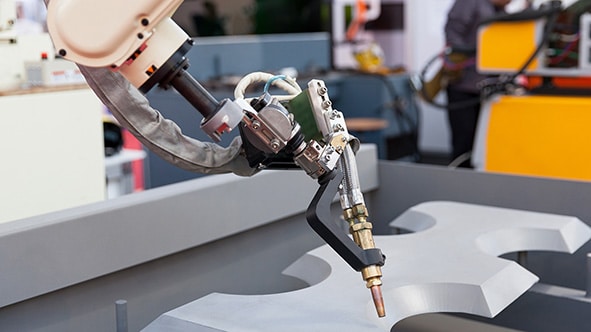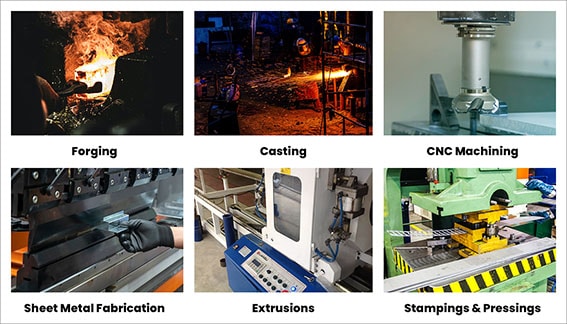
Industrial manufacturing can significantly benefit from creating a solid supplier base and outsourcing in Asia.
Outsource manufacturing has broadly always been reliant on raw material availability, a supply of labour and a low-cost base. It creates greater flexibility by negating the need to set up manufacturing plants that can require extensive capital expenditure and monthly overheads, not to mention the cost of maintaining safety and health standards. The same applies to industrial manufacturing, which requires significant investment in machinery and tooling and can be labour extensive.
The “New Now”
Asia already has a good supply base for industrial production across casting, forging, machining, metal fabrication, stamping and plastic injection manufacturing processes. But importantly, now at a time when companies have to cope with disruption to their client and the drop off in sales, there is a focus on stabilising their bottom line or reduce overheads where possible. This has resulted in many companies looking to activate Outsource Manufacturing programmes and move to an offshore production strategy. That said, with markets currently closed, looking to manufacture high-quality complex engineered components requires attention to detail and local resource in order to achieve the best outcome. Finding the right partner is absolutely critical to the success of such a move to maintain on-time shipments and more importantly consistent quality but by getting this right there will be significant cost benefits.

The benefits of outsourcing industrial components
In addition, most businesses only look at component level for industrial manufacturing when looking at offshore destinations. With lower labour costs it is important to focus on sub-assemblies or fully-finished assemblies to reduce the touchpoints at destination. This leverages the low-cost advantages by removing local labour directly impacting total cost ownership, which creates a significant competitive edge.
Industrial Manufacturing in Asia
Although there are significant benefits of offshoring your industrial production, there are still challenges that lie ahead given the different markets, culture and business environments. Understanding how these are overcome will be important to the success of implementing this particular strategy. From our perspective, looking to develop relationships over the medium term (and beyond) is a central factor to delivering the product you need.
Here are some key points to consider in working with Asian industrial manufacturers:
1. Define your requirements clearly
The variation of language always poses a challenge when it comes to understanding the project and its parameters, particularly when interpreting technical drawings. However, with clear and defined technical specifications and the right partner it should be possible to get accurate costings at the outset.
2. Quality Assurance
Given the variation in industrial manufacturing processes, it is important to conduct the necessary quality assurance which should cover a technical assessment of machining capability, safety procedures in place and ethical standards. There are a range certifications that should be available for different manufacturing processes such as ISO 9001, ISO 45001 and SA 8000. Make sure that these are also independently verified.

3. Build commitment
You need to commit to forming and cultivating a healthy long-term working relationship. It is important to treat the manufacturer as a partner and to give your full attention to the partnership. Particularly, where there are moulds and upfront charges required.
4. Close contact and communications
Asian factories prefer those who spend more time working closely with them. They expect their partner to get involved in sample making, order placement, quality control, production planning, and shipping. Therefore, it is best to have a team (on the ground) to work with the factory on a daily basis.
5. Business culture
It is still important for foreigners to understand and appreciate Asian business culture. Accommodating these cultural differences is a key component in developing long term relationships. More than ever, have a reliable ‘partner’ within your supply chain will add value and drive benefits.

Overview
There are significant benefits of moving industrial manufacturing overseas but you need to make sure you have the resource and capability to execute this offshore strategy. At ET2C, we have 20 years’ experience in industrial manufacturing out of Asia. We are therefore well placed to help you migrate some of your production into the Asian manufacturing sector. Our team on the ground will walk you through the process and help manage the suppliers and quality upstream. For more information contact us at contact@et2cint.com

